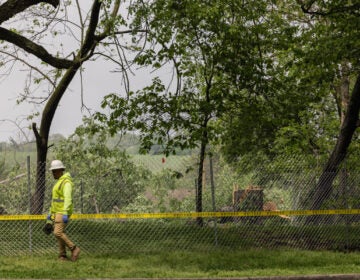Philly D.A. says civil forfeiture case is moot, requests dismissal
The civil lawsuit against the Philadelphia’s aggressive civil forfeiture tactics, which began last August, is slowly making some progress.
On Monday, an assistant district attorney moved to dismiss the case.
Late in 2012, an investigative report by the Philadelphia City Paper uncovered that the city brought in more than $6 million a year by means of its aggressive property seizures and difficult, confusing process for reclaiming those taken items.
The DA’s office says the system allows it to seize money and property believed to have connection to drug deals.
In May of 2013, police seized the home of Christos and Markala Sourovelis after their 22-year-old son was arrested for selling a small amount drugs outside — something they claimed to have no idea was going on.
The Sourovelis’s, joined by three other plaintiffs with similar cases, sued the city in August.
The seizure cases against two of the plaintiffs were dropped by the DA’s office last December. On Monday, the DA’s office argued that because the plaintiff’s seizure case is no longer ongoing, it should be wiped from the lawsuit.
Another point of contention is Court 478 — the first place you go to dispute property that’s seized by the city — which is run by the DA’s office, not a judge. On Monday, the office argued that it’s not its fault the system is designed that way, therefore it cannot be grounds for a lawsuit.
Darpana Sheth of the Institute for Justice represents the four plaintiffs in the case and says the DA’s argument doesn’t make sense.
“What’ they’re arguing is, ‘well, it’s not us, you have to blame the state court system,'” said Sheth after the hearing Monday. “That argument doesn’t make sense. They’re the ones that interpret the statute to allow for this, they’re running courtroom 478 without any judicial oversight. It’s really their actions and policies that we’re challenging.”
Assistant District Attorney representing the city did not comment after the motion.
It was the first time a federal judge had heard the motion to dismiss, and Sheth estimated it would take a month for a decision. If the motion doesn’t pass, then the two sides will begin presenting evidence to each other and eventually decide whether to go to trial.
WHYY is your source for fact-based, in-depth journalism and information. As a nonprofit organization, we rely on financial support from readers like you. Please give today.




